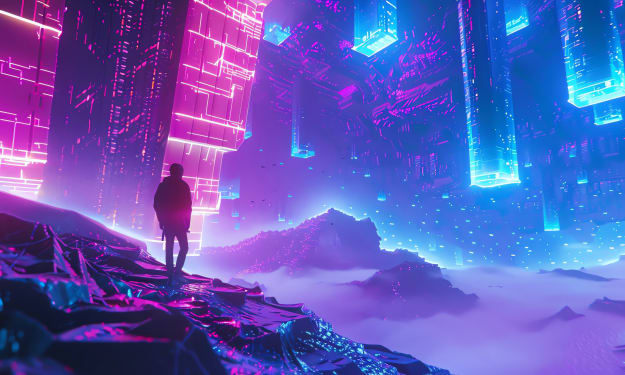Here are some ideas on how to revolutionize sensor technology.
The future of environmental monitoring is in their hands.

Here are some ideas on how to revolutionize sensor
technology.
Develop more sensitive, selective and robust sensors. This
would allow us to detect and measure things we can't today, or
to do so more accurately and reliably. For example, we could
develop sensors capable of detecting early signs of disease or
monitoring air quality in real time.
Make the sensors smaller, cheaper and more energy efficient.
This would make them more practical for a wider range of
applications. For example, we could have wearable sensors
that monitor our health and fitness, or sensors built into our
homes and workplaces that monitor our environment and
automate tasks.
Develop sensors that can communicate with each other and
with other devices. This would allow us to create sensor
networks capable of collecting and analyzing data from multiple
sources. This data could then be used to make better decisions
on everything from traffic management to climate change
Explore new ways of using existing sensor technology. For
example, we could use cameras to track the movement of
people and objects, or we could use microphones to analyze
sounds and identify different types of noise.
Here are some specific examples of new applications for
sensors of the future:
Sensors to monitor the environment for pollutants and other
hazards. This data could be used to warn people of danger and
to develop strategies to reduce pollution.
Sensors to track the spread of infectious diseases. This
information could be used to develop public health interventions
and prevent the spread of pandemics.
Sensors to monitor the health of people and animals. This data
could be used to diagnose diseases early, monitor the
effectiveness of treatments and develop personalized health
plans.
Sensors to monitor the performance of machines and
infrastructure. This data could be used to predict when
maintenance will be needed and to avoid costly failures.
Sensors to improve the efficiency of energy and transportation
systems. This data could be used to optimize traffic flow,
reduce fuel consumption and develop renewable energy
sources.
These are just a few examples of the many ways in which
sensor technology could be revolutionized in the future. By
exploring new ways of developing, using and integrating
sensors, we can create a safer, healthier and more sustainable
world.
Here are some more ideas for new applications for sensors of
the future:
Sensors to monitor the food supply for contamination and
spoilage. This data could be used to improve food safety and
reduce waste.
Sensors to track the movement of goods and materials through
supply chains. This data could be used to improve logistics
efficiency and reduce costs.
Sensors to monitor the health of livestock and crops. This data
could be used to improve agricultural practices and produce
safer, healthier food.
Sensors to monitor the safety and performance of buildings and
bridges. This data could be used to prevent disasters and
extend the life of infrastructure.
Sensors to monitor the climate and the environment. This data
could be used to better understand climate change and develop
mitigation and adaptation strategies.
In addition to these specific applications, sensor technology
could also be used to revolutionize many other aspects of our
lives. For example, sensors could be used to:
Create more engaging and interactive entertainment
experiences.
Develop new tools for education and research.
Improve the safety and efficiency of our transportation systems.
Make our homes and workplaces more comfortable and
convenient.
Help us live healthier and more active lives.
The possibilities are endless. As sensor technology continues
to evolve, we can expect even more innovative and
groundbreaking applications to emerge.
I'm particularly interested in the potential of sensor technology
to help us tackle some of the world's most pressing challenges,
such as climate change and poverty. For example, sensors
could be used to develop new ways of producing renewable
energy, monitoring and managing natural resources and
improving food security.
I'm also excited about the potential of sensor technology to
improve the quality of life for people around the world. For
example, sensors could be used to develop new tools for
people with disabilities, to create more inclusive and accessible
public spaces and to improve healthcare provision.
I believe that sensor technology has the potential to make the
world a better place. I look forward to seeing how this
technology will be used to create a more sustainable, equitable and prosperous future for all.
About the Creator
josias alves
Além de contar histórias, Josias também gosta de falar sobre curiosidades históricas. Ele acredita que a história é cheia de fatos interessantes que muitas vezes passam despercebidos.






Comments
There are no comments for this story
Be the first to respond and start the conversation.